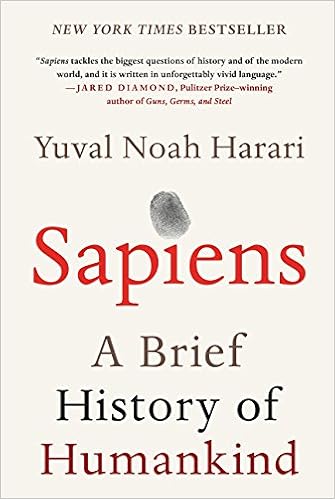I was about 10 years old when I made my first contact with the Star Wars series. It was the novelization of "Empire Strikes Back," translated into Chinese. Alec Guinness was not wrong when he thought "A New Hope" was a load of cheap garbage, but ESB was another matter. There is something deeply resonant and powerful in ESB. I read the book over and over and, when I finally got hold of a VHS copy of the movie, watched it many times.
Self-proclaimed Star Wars fans who complain that "The Last Jedi" has strayed from the canon, particularly a good-versus-evil, black-and-white configuration, have obviously not watched and chewed over ESB as I did. While JJ Abrams' "The Force Awakens" is a more superficial remake of ANH, TLJ is more faithful to ESB and the original trilogy in spirit. Rian Johnson is obviously one of the fans who were even more obsessed with ESB than I was.
It should be noted that it is entirely incorrect to believe George Lucas' Star Wars series are about the conflict and struggle between good and evil. He did not use these words in the movies, and that was the point. It is instead about light and dark, which are by no means interchangeable with the Christian (seen through an American Puritanical lense) concept of good and evil.
Drowned out by the "No, I am your father!" climax of the movie, people have often overlooked the important second act of ESB. In a critical scene, Luke Skywalker is directed to the planet Dagobah (an obvious allusion to the Buddhist term "dagoba," i.e., "stupa") to learn the way of Jedi from Master Yoda. Here in the swamp of Dagobah he is drawn into the dark side of the Force and, after a brief battle with a black figure resembling Darth Vader, he discovers that the head he has cut off is his own. This is a key scene ripe with symbolism (both philosophical and psychoanalytical), but it is left undiscussed between Yoda and Luke and between most commentators and the audience.
This thread is carried into ROTJ, when Luke insists on surrendering to Darth Vader and trying to turn him back to the light side of the Force. While Lucas has been derided for color-coding the characters' costumes with their moral status (like the hats in old Westerns), one cannot ignore the choice to have Luke wear all black in ROTJ, especially in the final confrontation. Does it mean he might turn to the dark side upon the Emperor's temptation? No, I think this is intended to venture into the yin-and-yang essence of the Force.
In several places, characters mentioned a certain "balance" in the Force, which can only refer to the balance between the light and dark sides. One is then led to infer that a balance in the Force is the coexistence of light and dark, not the elimination of the dark side. Unfortunately, Lucas never explicitly described this idea in any of his movies, including the prequels. Perhaps he was afraid that such an admission --- that the dark side is not only necessary but inevitable, and certainly not evil --- could alienate a vast number of fans who cannot bear such ambiguity. Or, perhaps he himself was always somewhat uneasy about it as well. Nevertheless, the idea of "balance" is there, and it seems that Johnson is far more comfortable with it and has no qualm about throwing it in our faces.
Lucas' ambivalence over his own concept is illustrated in ROTJ. The ending is a cop-out in more ways than one, and many critics have sensed it and wrote about what a disappointment it is after the greatness of ESB. The most appropriate resolution to the struggle between the light and dark sides is, obviously, restoring the balance, i.e., their coexistence. It would have been far more satisfying if Luke and his father die together in an embrace. Or, like the encounter of matter and anti-matter, both are annihilated in a burst of energy. Or even if both go their separate ways after exchanging a piece of each other --- in fact this is hinted at in the mirror image of the robotic hands of both father and son.
Despite some profound insight, we have seen Lucas at times struggling to articulate his ideas with clarity and courage. His difficulty only grew with the prequel trilogy, but the ideas are undeniably there. What makes him stand apart from colleagues like Steven Spielberg --- and the conventional American mythology of heroism --- is his reflection on the darkness in himself.
Lucas has talked repeatedly about the Vietnam War as an inspiration for ROTJ. There is a slightly disturbing and derogatory subtext in this analogy --- Was he trying to portray the short, skinny, foreign-looking Vietnamese fighters as the much maligned furry aliens? Not a flattering thought. Nevertheless, the meaning of the Vietnam War to him and to the series should not be underestimated. As a white man in America, surely he is aware that he himself is the Empire, as much as he (and all of us) would like to identify with the resistance or the Ewoks. What makes him unlike the others is that his self-awareness is stronger, or perhaps his self-deception is weaker. That's no small feat.
This reluctant acceptance of the dark side is more clearly and forcefully embraced by Johnson in TLJ. When Rey looks into darkness she too sees herself. Note the self-awareness and self-critique in Yoda's gleeful destruction of the Jedi library --- so gloriously satisfying and so consistent with Zen Buddhism. One of my favorite parts of TLJ is the unabashed connection and, in a sense, mirror image between Rey and Kylo Ren. They touched, even. Best of all neither character defeated the other in their final battle. That is the balance that keeps the universe alive and thriving.




